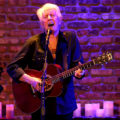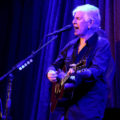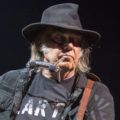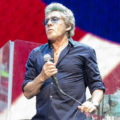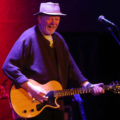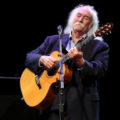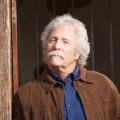A solo David Crosby steers around the obvious for a deeper overview of the old and upcoming
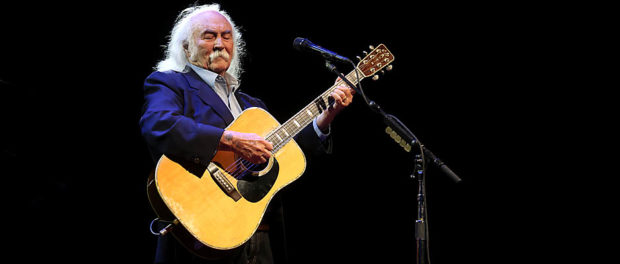 Photos by Andy Argyrakis
Photos by Andy Argyrakis
Outside of teasing he strategically planned a current solo tour to land in Canada right around the election just in case Donald Trump wins, David Crosby didn’t talk politics until the back half of a two-hour performance at a sold out Thalia Hall. Prior to a striking a cappella rendition of “What Are Their Names,” the legendary singer/songwriter spoke skeptically of war being a major money-making industry for the government, as opposed to purely the pursuit of peace.
“I’m not sure if I made a difference,” the ongoing activist said as his passion for the subject escalated in defense of injured or deceased veterans, though an equally fervent fan quickly countered with “you’ve made a difference to us.” Indeed, the one time member of The Byrds and Crosby, Stills, Nash & Young (in its countless incarnations), who played a significant role shaping the sounds and attitudes of the ‘60s and ‘70s, continues giving an unvarnished analysis on subjects spanning much of the societal spectrum.
 Though the double Rock and Roll Hall of Famer could’ve easily dialed in a standard retrospective set, Crosby reconnected with the more distant crevices of his past, while also sharing he’s in the midst of a creative writing burst. As if 2014’s “Croz” and the forthcoming “Lighthouse” album (out October 21) weren’t active enough, he’s currently finishing up another offering called “Home Free” slated for sometime next year.
Though the double Rock and Roll Hall of Famer could’ve easily dialed in a standard retrospective set, Crosby reconnected with the more distant crevices of his past, while also sharing he’s in the midst of a creative writing burst. As if 2014’s “Croz” and the forthcoming “Lighthouse” album (out October 21) weren’t active enough, he’s currently finishing up another offering called “Home Free” slated for sometime next year.
Along with his son James on piano, the acoustic guitar-wielding Crosby uncovered “What Makes It So” (from “Lighthouse”) with such purity of range that it’s seems impossible he spent so many years entrenched in substance abuse. Around intermission, the elder statesmen joked he was off to get some water and fresh air as opposed to any previous vices, and whether it was earlier selections such as CSNY’s “The Lee Shore,” Joni Mitchell’s “For Free” and The Bryds’ “Triad” or his own “Laughing” and “Cowboy Movie,” each seemed to benefit from an entirely new lease on life.
Even longtime band bedrocks “Déjà Vu” and “Guinnevere” adapted fresh outlooks in this stripped down framework that mirrored the way they were originally written (or as Crosby put it in the case of the former, minus “a lead guitarist who shall remain nameless”). Regardless if Crosby ever reunites with any of those previous pals, he’s embarking on arguably his most prolific period to date, which coming from a discography that pre-dates Woodstock, is a testament to an insatiable artistic drive that surpasses so many of his peers.
For additional information on David Crosby, visit DavidCrosby.com.
For a list of upcoming shows at Thalia Hall, visit ThaliaHallChicago.com.

